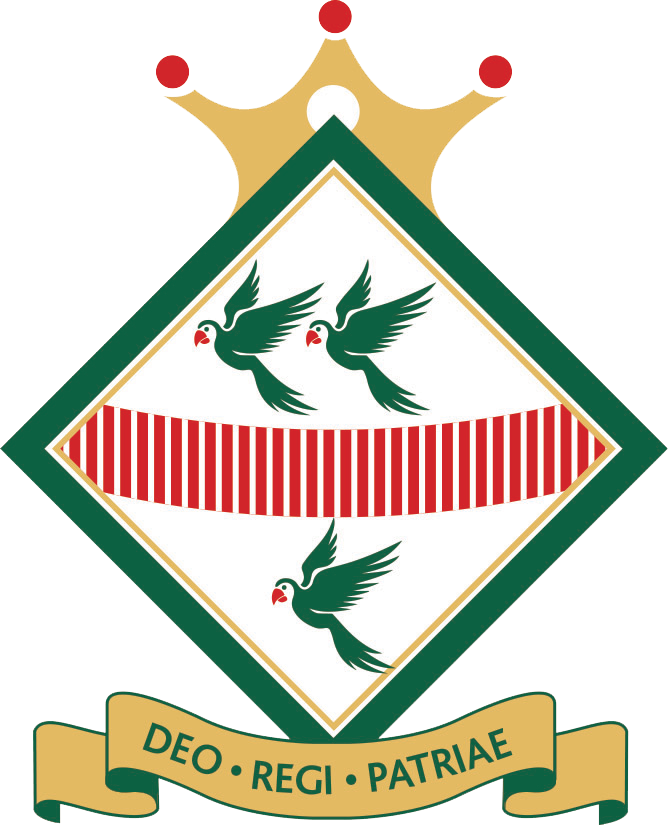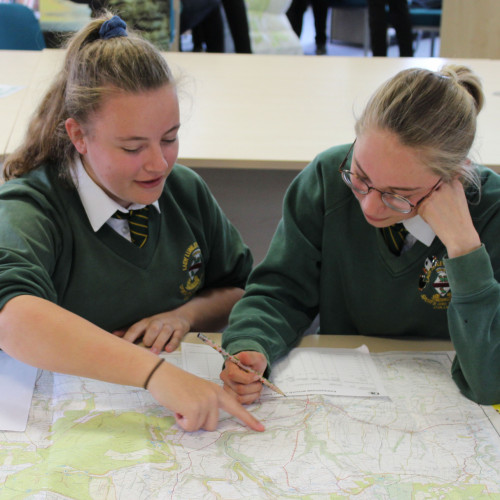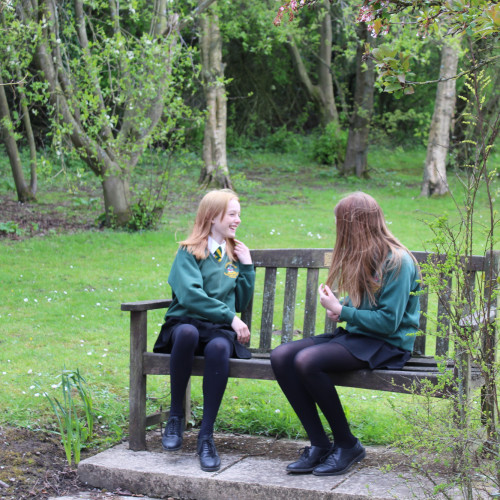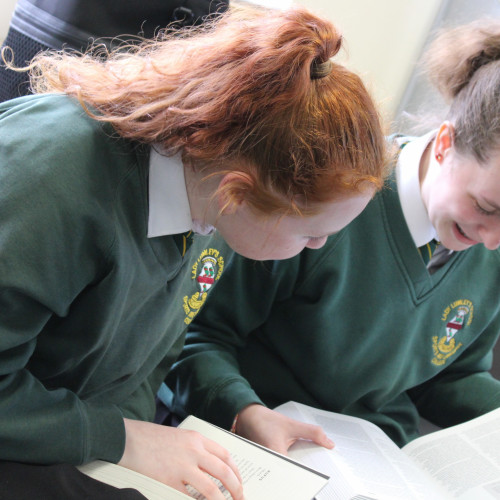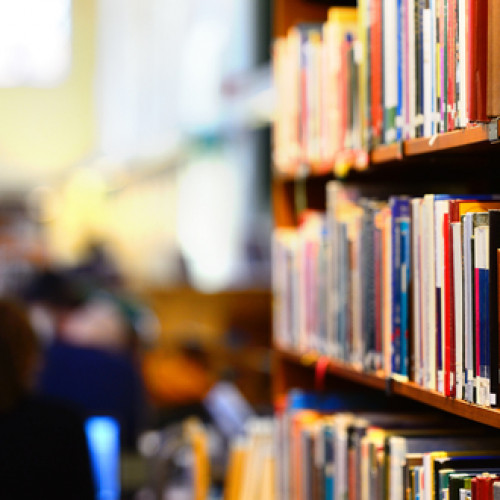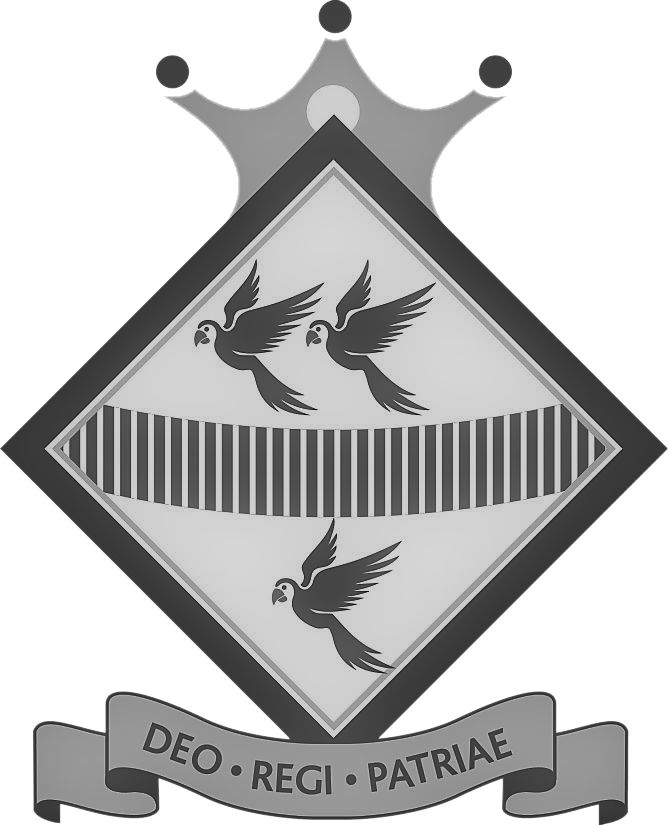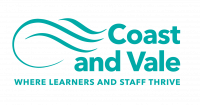Computing
Key Stage 3
The new computing curriculum equips students to use computational thinking and creativity to understand and change the world. Computing has deep links with mathematics, science, and design and technology, and provides insights into both natural and artificial systems. The core of computing is computer science, in which students are taught the principles of information and computation, how digital systems work, and how to put this knowledge to use through programming. Building on this knowledge and understanding, students are equipped to use information technology to create programs, systems and a range of content. Computing also ensures that students become digitally literate being able to use, and express themselves and develop their ideas through information and communication technology at a level suitable for the future workplace and as active participants in a digital world.
Year 7
Students are taught in their mixed ability tutor groups and have 1 lesson per week. They begin the year looking at collaborating online respectfully, focusing on how to send respectful emails, features of word processors and how to plan and present presentations. They investigate the history of computers, learn about the physical hardware of a computer and begin to understand machine code. Students learn the beginnings of computer programming as they learn about Scratch, and they also learn all about spreadsheets and their uses.
Year 8
Students are taught in broad sets, which are based on their maths sets and have 1 lesson per week. In Year 8 students start with cybersecurity and how to stay safe online. They learn about vector graphics and then build on their early understanding of programming from Year 7 and begin to look at Python. Students have the opportunity to learn how to create and develop simple Apps and they start to look at how to build a website.
Year 9
In Year 9 students re-visit cybersecurity and Python, building on their knowledge and understanding from Year 8. They look at data science, physical computing and digital media such as images and sounds, discovering the binary digits that lie beneath these types of media. These topics ensure the students have a comfortable understanding of computing that will benefit them in any path they take.
Enrichment
Students currently have the option of attending music technology club which allows them to explore a different side of computers that is heavily centred around music and modern music creating software. In the future there will be additional clubs to attend such as Coding Club where students are able to learn about coding programs or improve on their current knowledge through different activities and tasks.
Useful links:
https://www.bbc.co.uk/bitesize/subjects/zvc9q6f
GCSE Computing
The new computing curriculum equips students to use computational thinking and creativity to understand and change the world. Computing has deep links with mathematics, science, and design and technology, and provides insights into both natural and artificial systems. The core of computing is computer science, in which students are taught the principles of information and computation, how digital systems work, and how to put this knowledge to use through programming. Building on this knowledge and understanding, students are equipped to use information technology to create programs, systems and a range of content. Computing also ensures that students become digitally literate being able to use, and express themselves and develop their ideas through information and communication technology at a level suitable for the future workplace and as active participants in a digital world.
In GCSE Computing students will learn to:
- Understand and apply the fundamental principles and concepts of Computer Science, including abstraction, decomposition, logic, algorithms, and data representation.
- Analyse problems in computational terms through practical experience of solving such problems, including designing, writing and debugging programs.
- Think creatively, innovatively, analytically, logically and critically.
- Understand the components that make up digital systems, and how they communicate with one another and with other systems.
- Understand the impacts of digital technology to the individual and to wider society and apply mathematical skills relevant to Computer Science.
GCSE Computing Specification:
https://www.ocr.org.uk/Images/558027-specification-gcse-computer-science-j277.pdf
Enrichment:
Students currently have the option of attending music technology club which allows them to explore a different side of computers that is heavily centred around music and modern music creating software. As well as this, in the future there will be additional clubs to attend such as Coding Club where students are able to learn about coding programs or improve on their current knowledge through different activities and tasks.
Useful Links
https://www.bbc.co.uk/bitesize/subjects/z34k7ty
A Level Computing
Students study this course over the 2 years and are examined at the end of Year 13. Computer Science is becoming an ever-increasingly important subject as the world develops and becomes more technological. The Computer Science course is a practical subject that allows students to use the knowledge and skills they learn in the classroom on real-world problems. Not only does the course deal with practical problems, but it also allows students to be creative and inventive in the classroom. This is an ever developing and modern qualification that is becoming more important for students as time progresses. The course is simple and intuitive that offers flexibility and easily understood requirements. Students gain a deep understanding of computers and programming alike.
The 3 components studied are:
Component 1: Computer systems - Students are introduced to the internal workings of the (CPU), data exchange, software development, data types and legal and ethical issues
Component 2: Algorithms and programming - This builds on component 1 to include computational thinking and problem-solving
Component 3: Programming project - Students are expected to apply the principles of computational thinking to a practical coding programming project. They will analyse, design, develop, test, evaluate and document a program written in a suitable programming language. The project is designed to be independently chosen by the student and provides them with the flexibility to investigate projects within the diverse field of computer science. We support a wide and diverse range of languages.
A Level Computer Science Specification:
AS and A Level - Computer Science - H046, H446 (from 2015) - OCR
Enrichment
Students currently have the option of attending music technology club which allows them to explore a different side of computers that is heavily centred around music and modern music creating software. As well as this, in the future there will be additional clubs to attend such as Coding Club where students are able to learn about coding programs or improve on their current knowledge through different activities and tasks.
Useful Links:
https://isaaccomputerscience.org/topics/a_level?examBoard=all&stage=all#all
